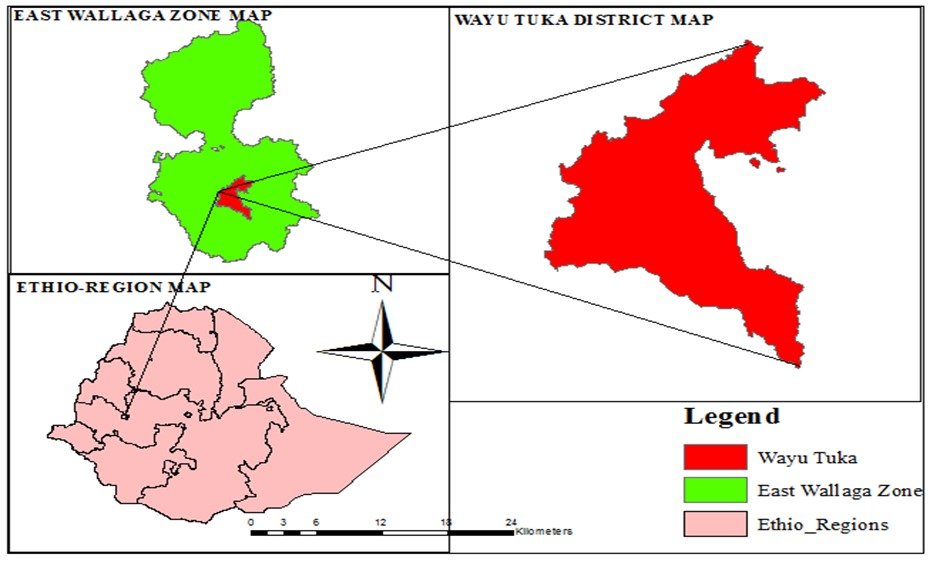A Major Constraints and Health Management of Village Poultry Production in Wayu Tuka District East Wallaga Zone, Western Ethiopia
Keywords:
Chicken Districts, Ethiopia, Poultry, Wayu Tuka.Abstract
The purpose of this cross-sectional study was to identify the main obstacles and the health management system of the Wayu Tuka districts' poultry production system. The area's consenting study participants created and distributed a semi-structured questionnaire. Out of the 100 responders, 37%, 34%, and 29% were from the district's Migna Kura, Bonaya Molo, and Gute Badiya kebeles. Of the participants, 29 (29.0%) were female, while the remainder (71%) were male. The majority of participants kept at least one chicken in their houses, mostly to produce eggs and meat. In the research area, more than half of the respondents (57 percent) stated they favored the unusual varieties of chicken. Of the respondents in the study area, 44% used backyard management systems, and 56% used semi-intensive systems to manage their chickens. Regarding the frequency of cleaning the chicken buildings, half of the respondents reported doing it daily, while 36% reported cleaning them just twice a week. Most respondents claimed to have access to the marketing system and to use local shopkeepers to sell their products at doorsteps and village markets. Even though 56% and 43% of poultry owners, respectively, vaccinated and dewormed their animals, just 42% of them took care of the health and biosecurity of their chickens. In response to questions on the actions taken for the sick hens, most respondents consult veterinarians, 15% sell the sick birds, and 14% treat them with conventional medications. The research area's village poultry production faces several key obstacles, including disease and predator outbreaks, inadequate healthcare, subpar nutrition, and inadequate marketing information. Thus, in addition to hands-on instruction, ongoing training in better home design, appropriate feeding practices, and disease and predator management should be provided.
Downloads

Published
How to Cite
Issue
Section
Copyright (c) 2021 Authors

This work is licensed under a Creative Commons Attribution-NonCommercial 4.0 International License.
